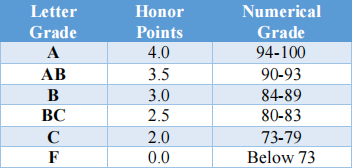CS552BO1 FA21 Object-Orientd Design - Syllabus
Hello, dear friend, you can consult us at any time if you have any questions, add WeChat: daixieit
CS552BO1: Object-Oriented Design
COURSE DESCRIPTION:
This course covers taught in a competitive software project environment. Students analyze large or small systems using a requirements-proposal methodology. Each student will experience the system life-cycle methodology from proposal to delivery and installation phases. The students will research their solutions based on criteria described by the instructor. Each analysis includes problem definition, feasibility, design, implementation, maintenance, and training. Data collection technique, system design tools, cost/time estimating are all studied in detail. "Real-world" examples give each student practice as a systems analyst. In addition to individual (or small team) software-development projects, individual homework assignments are required. Prerequisites: NONE.
COURSE OBJECTIVES:
Students will be introduced to the software system analysis and design process in the object-oriented approach. Topics covered include the software life cycle, requirements analysis, system architectural analysis and design, data design, detailed design and test methods, software project management, and miscellaneous topics.
COURSE REQUIREMENTS:
Students will participate as individuals (or as members of one of several teams) on a software project. There will do software system analysis; design; code generation and reviews, and a student (or a project leader) will assure timely delivery of the results before the end of the term. The software is expected to be integrated and run without error on a computer in the Rivier University Computer Lab. In the case of a team-project effort, each person will have a specific “role” on the team and will receive a grade for efforts as an individual team member as a team grade.
COURSE TEXTBOOK:
(OOD) Dennis, Wixom, and Tegarden, System Analysis & Design: An Object-Oriented Approach with UML, John Wiley & Sons, Inc., 6th (2020), 5th (2015), 4th (2012) or 3rd (2009) eds. (Resources: http://www.wiley.com/University/dennis/).
RECOMMENDED BOOKS:
(SAD) Shelly, Cashman, and Rosenblatt, System Analysis & Design, 7th edition, Course Technology, 2008 (Resources: http://www.course.com/catalog/);
(OOS) Stephen R. Schach, An Introduction to Object-Oriented Systems Analysis and Design with UML and the Unified Process, McGraw-Hill, 2004 (Resources: http://www.mhhe.com/schach/).
COMPUTER LABORATORY:
Students will be required to use the University Computers in the Computer Lab for coding and testing the software. Visual Paradigm (http://www.visual-paradigm.com/product/vpuml/communityedition.jsp) and ArgoUML(http://argouml.tigris.org/) tools are available in STH-133 (or free on the Internet) and MEM-202, and can be used between 9 a.m. and 10 p.m. If you have any problems with the equipment, contact Sister Martha’s office in the Computer Academic Center. All CS tools (traditionally used in particular CS courses) are available from VDI (Virtual Desktop Infrastructure) that can be reached remotely (via Horizon Clients™), (see IT Support site on VPN: https://it.rivier.edu/information-technology/vpn/ for the further instructions).
COMPUTER LANGUAGES:
Either UML, Visual Paradigm, Java or C/C++ may be used. The Project Team Leader will be responsible for assuring designers create “compatible” modules and properly link modules, which are not from the same source language.
IT SUPPORT for MANAGING the REMOTE ACCESS to CANVAS, ZOOM, and VDI (CS TOOLS)
The IT Support staff provides detailed information on how to create personal students' accounts and manage the remote access to CANVAS, ZOOM, VDI (CS tools), etc. (See IT Support site on VPN: https://it.rivier.edu/information-technology/vpn/ for the further instructions. The other IT website contains useful information as well: https://it.rivier.edu/information-technology/working-remote/).
24/7 CANVAS LMS TECHNICAL SUPPORT:
All students have the ability to access CANVAS technical support on a 24/7 basis. Students have many different options for obtaining support, including phone, online technical library, or Live Chat with a customer service representative. The support can be accessed by following this link: https://rivier.instructure.com/ or via e-mail: [email protected].
EXAMINATIONS and GRADING:
Evaluation Mechanism:
Students are required to complete all assignments (three homeworks and team/individual project report). Grades for all assignments will not be determined by curves. Letter grades submitted to the Registrar’s Office are based on the Rivier University Grading system. The conversion from numerical grade to letter grade will be based on the following table:

The grade is made up of your performance on your three homeworks and team/individual project report. Approximate weightings are as following:

2021-09-19